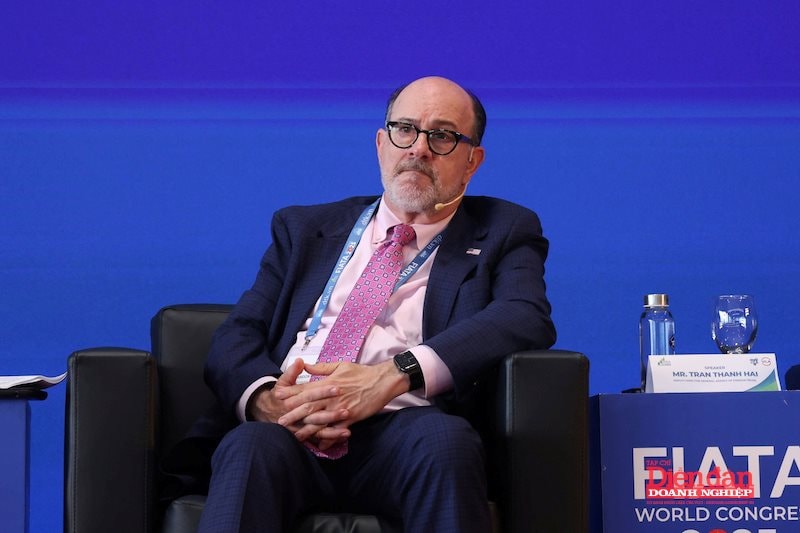FIATA World Congress 2025: Reciprocal tariffs and balancing the global supply chain
Panelists analyzed how changes in tariff policies, especially in the US, have caused supply chain shifts and increased uncertainty.

Mr. Brandon Fried, Executive Director, Air Cargo and Team Building Specialist, American Airforwarders Association
The topic of "Restructuring global trade: Challenges and new adaptation strategies" was covered by experts and government representatives from numerous nations at the FIATA World Congress 2025. This discussion panel was held in light of the world's geopolitical crises, shifting tariff policies, and growing complexity in international trade.
Reciprocal tariffs, according to Mr. Brandon Fried, Executive Director, Air Cargo and Team Building Specialist, American Airforwarders Association, are basically a gauge of the two-way trade balance between nations. However, the people who are most affected by tariff regulations are consumers.
Simultaneously, the United States has removed the de minimis threshold for shipments under $800, which has led to the taxation of billions of goods and caused havoc for delivery agents and carriers.
Mr. Brandon stressed that companies who don't have digital capabilities for customs compliance will have a lot of trouble.
This change signals a challenging time, particularly for smaller shipping companies. The expense is being borne by consumers, despite the claims of many that the US is collecting billions of dollars in tariffs. Particularly important to the economy, small and medium-sized enterprises lack the wherewithal to endure these swings. Mr. Fried stated that a return to a more stable and sensible tariff policy is now necessary.
Mr. Tran Thanh Hai, the representative of Vietnam, underlined that Vietnam is still committed to international integration and is unwavering in its trade liberalization stance.
Mr. Hai stated, "Vietnam had prompt policy responses when other countries raised import taxes by adjusting import taxes from 49% to 20%, or even 0% for some goods, to increase competitiveness in the global supply chain."
Vietnam is now a viable alternative location for manufacturing and export to China thanks to this tax policy. Mr. Hai added, though, that in order to avoid fines, supply chain participants must closely adhere to manufacturing and origin laws.








